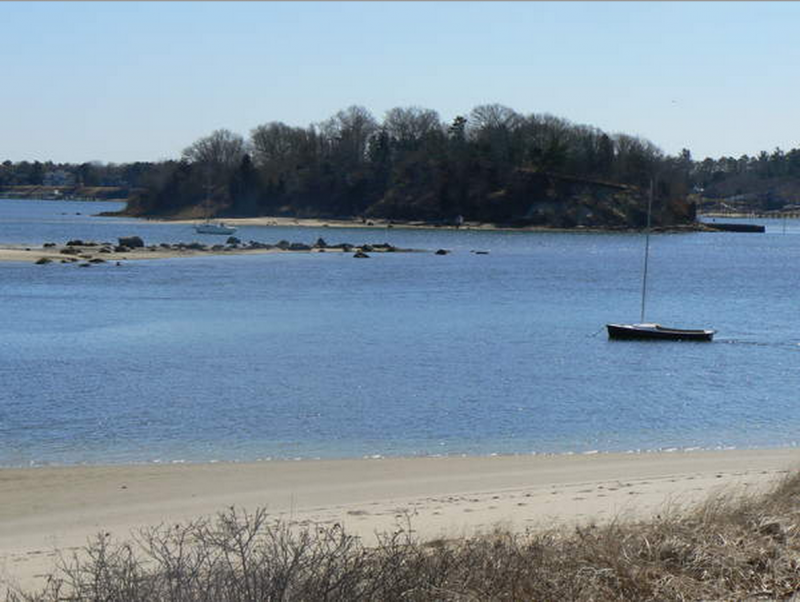Town Wetlands Protection Act bylaw faces deletion
The town’s Wetlands Protection Act bylaw may be voted out of existence at Fall Town Meeting later in October.
The Board of Selectmen moved to put the potential deletion of the law onto the Town Meeting warrant at their meeting on Sept. 29. Board Chairman Tropeano said getting rid of the bylaw would not override the state’s Wetlands Protection Act – “that’s a state law, and we still have to enforce the state law.”
Massachusetts law states that residents and business owners must file notices of intent, when they wish to build within 100 feet of a wetland, and that they may build up to, but not past, the wetland line. The town’s bylaw differs in that residents must leave at least 30 feet between the end of any proposed construction and the beginning of a wetland line on their property, and business owners must leave at least 50 feet.
Tropeano said the bylaw creates unnecessary hinderances when it comes to making sure the town is properly functioning. He cited road repair as one of those instances. Under the bylaw, Tropeano said, the Board must go through a fairly expensive process of filing a notice of intent, before they are able to begin fixing a road.
“We do have … a requirement that we bring roads up to [state] standard,” Tropeano said. “Typically, it will cost us up to $10,000 to go through the notice of intent process to repair our own roads. It’s expensive, and not necessary to [be able to] fix a road.”
But, according to town Conservation Agent David Pichette, who heads the Conservation Department, this is incorrect. The town would not be exempt from the permitting process of the state’s wetlands laws.
Under state law, because some roads exist within 100 feet of wetland, the town would still have to file a notice of intent to reconstruct a road, and go through the same process, at the same expense, regardless of whether or not the bylaw existed. Getting rid of the bylaw would not change this fact.
“There is nothing in the bylaw that is above and beyond what the state requires [regarding road reconstruction],” Pichette said. “There is not an expense above and beyond what is required by the state.”
Under both state law and the town’s bylaw, roads and other construction or repair projects that fall outside that 100-foot distance, or other jurisdictional areas, such as flood zones, would not be subject to filing or fee requirements.
“Let’s say you have a road reconstruction, and there are no wetlands [or jurisdictional areas] around, then there is no wetland permitting required,” Pichette said. “There are really no circumstances [for road reconstruction] where a permit would be required based solely on the bylaw.”
Conservation Commission Chairman Kenneth Baptiste worries the state regulations are not enough. He said the state mandates regarding wetlands conservation are at a “minimum,” and that the Selectmen “are sticking their noses where they don’t belong” so they can “build and construct and ruin the coastline.”
“If we relax the local bylaws, this town’s in trouble, because they will be building on the beaches,” Baptiste said, referring to the elimination of the residential and business buffer zones that exist under the bylaw. “They will be encroaching on the wetlands, and the ocean, and cutting down trees. Wildlife needs a place to live, and we need trees to breathe.”
Baptiste also said he has never once seen Tropeano, who is the Commission liason, at one of the Commission’s meetings. Tropeano confirmed this.
“They haven’t seen me this year. It’s a little more difficult to get to these things, when you are Chair,” Tropeano said. “But it’s not like we don’t know what’s going on.”
Tropeano also said the Board “ends up in court a lot,” due to the nature of appeals to develop pieces of land. He feels this particular part of the bylaw takes away residents’ ability to use their own properties.
“Obviously, you don’t want someone running a truck stop in the middle of the neighborhood, but I don’t know if we draw the right line,” Tropeano said.
Under the town’s bylaw, anyone who wants to build near wetlands must submit an application to the Conservation Commission. If the Commission denies a permit, the case may go to court.
But Pichette said they “almost never end up in court, on projects.” More often than not, he said, applications are granted.
“It’s very rare for a case to end up going to court, because we rarely end up flat-out denying any projects,” Pichette said. “Out of the last, let’s say, five years, we might have had three to four cases that have been to court, but we’ve reviewed and approved several hundred projects.”
Pichette also said getting rid of the bylaw would eliminate a portion of town revenue, due to the fact that the bylaw requires some fees, based on the time and nature of certain projects. Though Tropeano said the town would keep the fee portion of the bylaw, Pichette said that would be impossible, because the bylaw is “the basis for having [the local fee].”
Additionally, Pichette said, the bylaw requires that neighbors whose properties abut proposed construction areas be notified of the proposal, so they may weigh in on the construction.
“I just think it’s unfortunate that such misleading and inaccurate statements are being made by the Selectmen on this topic,” Pichette said.
The Board of Selectmen will hold their next meeting on Tuesday, Oct. 6 at 7 p.m, and the Commission will hold its next meeting Wednesday, Oct. 7 at 7 p.m. The article will be on the warrant at Fall Town Meeting on Oct. 26 at 7 p.m.












